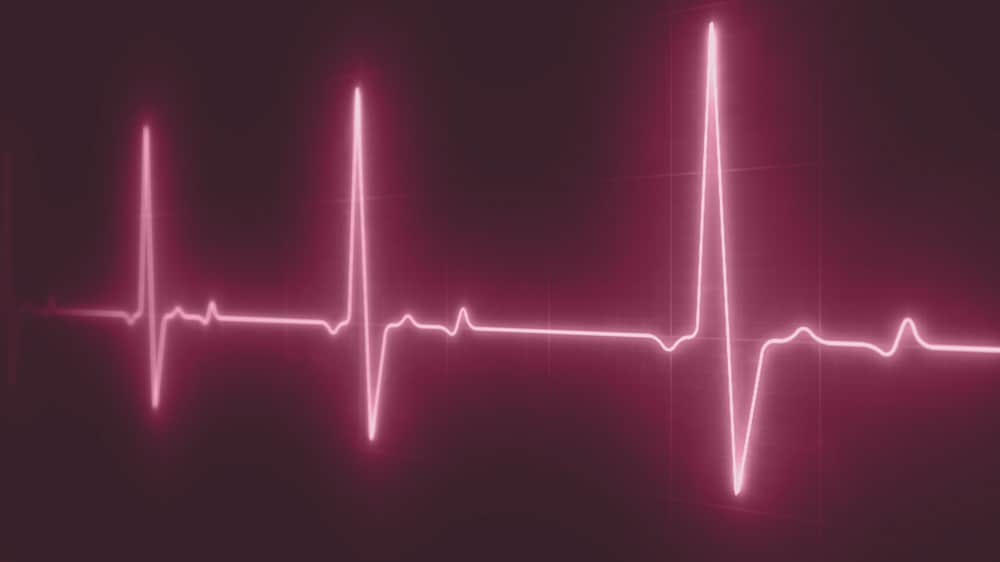

CiPA Screening
Evaluation of the proarrhythmic liability of new drug candidates
Comprehensive ion channel panel
An active participant in the Comprehensive in Vitro Proarrhythmia Assay (CiPA) ion channel HTS sub-team, we are also a member of the Health and Environmental Sciences Institute (HESI) cardiac committee. Working closely with HESI we helped reduce data variability between screening sites and to provide validation data to support efforts to generate predictive in silico models. Through these activities, we have validated assays for a wide range of different human ventricular ion channels, which includes the full CiPA panel: hERG, peak and late Nav1.5, Cav1.2, KCNQ1/KCNE1, Kir2.1 and Kv4.3 (Table 1), and also developed a dynamic hERG assay, the data from which can be used to improve the accuracy of the FDA model. Screening services against HCN4 and Kv1.5, which play important roles in controlling human heart rate and atrial repolarisation, respectively, are also provided.
Table 1. Assays for a wide range of different human ventricular ion channels.
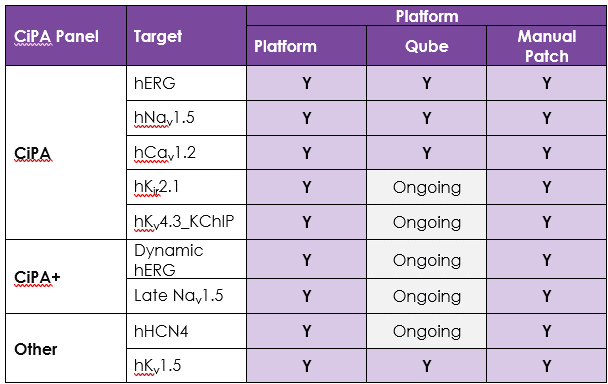
Potency assessments against each cardiac ion channel
We provide potency assessments against each cardiac ion channel using single-point or four-point concentration-response assays using:
- The QPatch48 automated patch-clamp platform.
- Gold standard manual patch-clamp methodology.
The potency data derived from these high-fidelity platforms are suitable for use in in silico action potential models, which is the second ‘pillar’ of the CiPA initiative.
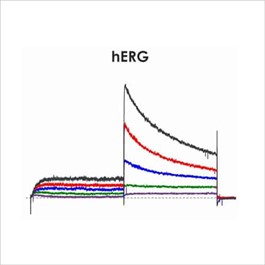
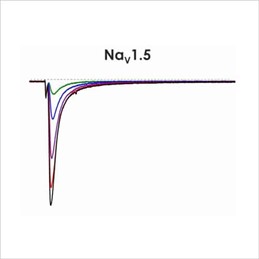
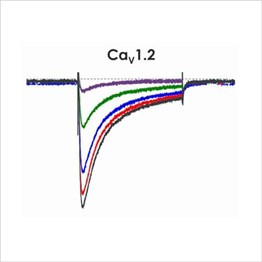
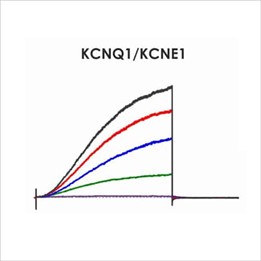
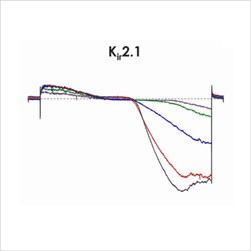
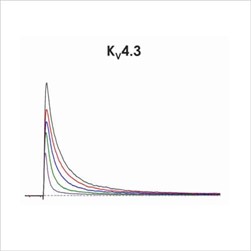
Assays for hERG, NaV1.5 and CaV1.2
Cardiac screening assays have been developed against hERG, NaV1.5 and CaV1.2 on the Qube, a 384 well automated patch-clamp platform. A number of different assay configurations are available.
Dynamic hERG assay
New screening assays can be created from existing cell lines. As part of our efforts to create an expanded panel of CiPA-compliant cardiac safety screening assays, we have developed and validated an optimised version of the very challenging ‘Milnes’ dynamic hERG voltage protocol suitable for automated patch clamp.
About the Comprehensive in Vitro Proarrhythmia Assay (CiPA) initiative
The International Council on Harmonization (ICH) S7B and E14 regulatory guidelines were introduced in 2005 to evaluate the proarrhythmic liability of new drugs. They were implemented in response to the discovery that inhibition of the rapid delayed rectifier potassium current (IKr), which is encoded by the human ether-à-go-go related gene (KV11.1), is associated with prolongation of the QT interval and the potentially deadly arrhythmia, Torsades de Pointes.
The guidelines utilise hERG inhibition and QT interval prolongation as surrogate markers of proarrhythmic liability, which are highly sensitive and have proven effective at preventing proarrhythmic drugs from reaching the market. However, these markers have low specificity, with only a modest correlation between hERG inhibition, QT prolongation and proarrhythmic liability. Therefore, to address these limitations, the Comprehensive in Vitro Proarrhythmia Assay (CiPA) initiative was launched by the Food and Drug Administration (FDA) in July 2013. The CiPA initiative aims to improve the accuracy and reduce the cost of predicting cardiac liability using three ‘pillars’:
- Compounds will be profiled against a panel of human ventricular ion channels.
- This in vitro data will be incorporated into an in silico model of a human action potential to provide a proarrhythmic risk classification.
- Compounds will be tested using human induced pluripotent stem cell- derived cardiomyocytes to confirm the risk classification derived from the in silico model.
We have developed a comprehensive panel of CiPA compliant assays and additional assays that provide an excellent in vitro evaluation of cardiac risk.

Let’s work together
What are your specific ion channel screening requirements?
If you have any questions, or would like to discuss your project, we will put you directly in touch with a member of our scientific team. Contact us today to discover more.

